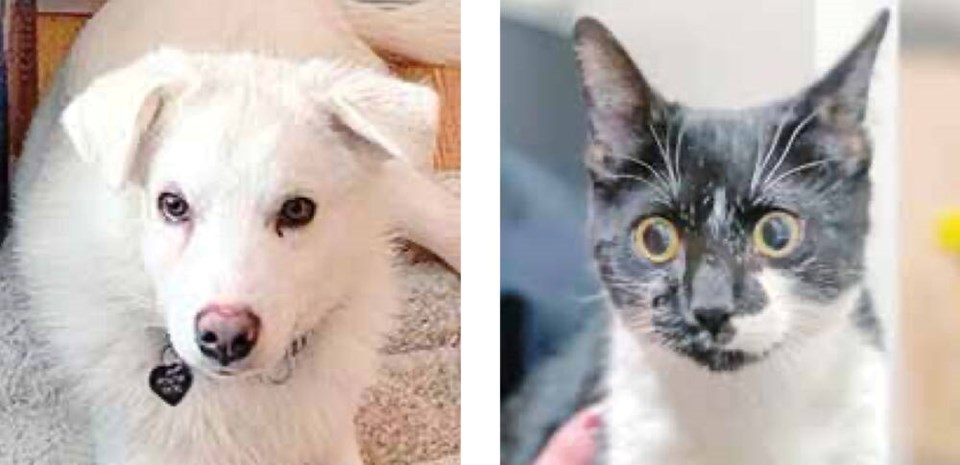No, don’t surprise anyone with a puppy for Christmas.
A homemade gift certificate for a new pet, maybe. You could wrap it up with a leash or litter box.
But an actual animal under the tree? Bad idea.
“It’s like picking someone’s wife or husband for them,” says Penny Stone. Better to leave it to the recipients to choose the companions with which they’ll spend the next several years.
Now, don’t get Stone wrong. As executive director of the Victoria Humane Society, Stone would love to find homes for all the cats and dogs that are overwhelming her organization.
There are so many of them right now — 63 puppies alone! — that the group has had to draw up a waiting list for owners who want to surrender pets for which they can no longer care.
Still, Stone is leery of pets as Christmas gifts. It’s not just the choose-your-own-partner-for-life thing. It’s also that as impulse buys, they rank up there with time-shares, long-term commitments their owners might rue.
True, seeing little Spot wriggle out of his wrapping paper can make for a lovely Hallmark moment, but Christmas Day can also be pretty chaotic and frightening for a dog or cat thrust into a strange situation.
Either that, or nobody’s watching while they devour somebody’s new cellphone, or an ornament, or foods they shouldn’t eat.
“Lots of animals get pancreatitis because of the turkey people feed them at Christmas,” Stone says. Note that Boxing Day is the busiest day of the year at many pet hospitals.
She says all this as the humane society finds itself buried in an animal avalanche, decades of work undone by the pandemic.
“I’ve been doing this for 20 years and I’ve never seen the state of animal welfare so low,” Stone says.
What happened? First, the Humane Society couldn’t travel to remote sa国际传媒 communities after COVID hit, meaning that it couldn’t continue the neutering programs that kept a lid on the number of unwanted animals.
“It easily set us back 10 years,” Stone said. With short gestation periods and large litters, it doesn’t take long for feline populations to get out of control. She cited a stat that says one unspayed cat can lead to 5,000 kittens in seven years.
While fielding the surge of animals from remote communities, the Humane Society has also been flooded by city-dwellers wanting to surrender dogs and cats.
Some of the people whose desire for pandemic pals led to a dog shortage in 2020 have found they no longer want — or can handle — the animals, many of which went unsocialized and untrained during their isolation.
Some owners have found themselves either financially or emotionally ill-equipped to care for a pet. It’s not just any old dog that qualifies as an emotional-support animal, Stone says. Special training is needed.
Adding to it all: Pop-up breeders who took advantage of the dearth of dogs during COVID have found themselves with puppies they can’t give away, let alone sell. At the same time, adoptions have dried up.
The result? In addition to those 63 puppies, the humane society currently has about 200 dogs and cats in its care.
The group has told local people who want to turn in their pets that they’ll have to go on that waiting list, as priority must be given to animals from sa国际传媒’s Interior and other places where the cold can prove fatal.
Illustrating that latter point were a dog, Oliver, and cat, Neville, that were just brought to Victoria after being found frozen to the ground in Saskatchewan. “They had to be cut out of the ice,” Stone said.
All this has put a strain on the Humane Society, which relies on volunteers to foster the animals in its care. They’re getting burned out. Some would like a break over the holidays.
“We’re just overwhelmed,” Stone says.
Something to think of before placing that surprise under the tree.
>>> To comment on this article, write a letter to the editor: [email protected]



